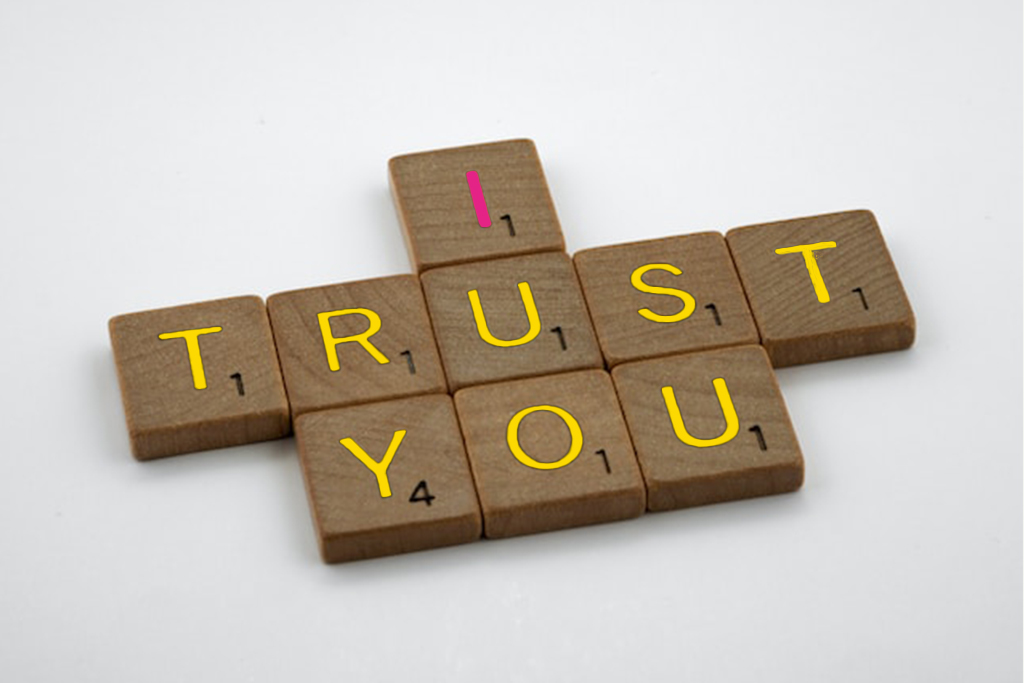Last week I discussed collaboration with a client to measure the level of perceived psychological safety individuals felt before and after a series of trust building sessions. After a series of daily practices focussed on closing the gap in the identified areas and behaviours that needed some work, people felt more safe at work, within their team and within certain relationships which helped to create a better foundation for trust and respect.
Here are a few of the assigned daily practices that can help everyone; leaders and employees alike, to develop some great self-reflection and self-awareness, create better work relationships and collectively cultivate more trust at work.
Daily Practices worth embracing each day:
- Find an opportunity to admit a mistake you made in front of others
- Find an opportunity to frame the work as a learning opportunity
- Select one meeting where you model curiosity instead of modelling certainty or clarity
- Choose one meeting where you ask 3 to 5 questions before making a statement
- Choose one meeting where you focus on talking about what you like about someone’s contribution before adding your thinking
- Just before starting work, consciously choose the story and energy that will be most helpful for the day
- Select a meeting where you consciously choose the story and energy that will be most helpful in that meeting
- Find one opportunity to be fully present for 30 minutes
- Spend 5 minutes having a conversation with someone I need to have a better relationship with, where there is no other agenda other than to connect with them as a human being
- Find one tiny change you can make that will improve the process, speed things up, reduce a tiny cost, increase quality
- Find something topical in the news and have a conversation with a team member about how it might affect where we work
- Find one opportunity to make a decision rather than ask others
- Find one meeting where you consciously practice communicating in the opposite way top your natural preference
- Find an opportunity to have an exploratory conversation (in the conversation, use this sequence of language; “I noticed”, “I think”, “I feel,” “the key message is”, “my question is”.
- Ask a different check in question that helps team members find and hold a helpful energy for the meeting
- Find an opportunity to start a meeting or a conversation with ‘Why’
- Find an opportunity to design and tell a helpful story that helps your team connect with a helpful way of thinking and being.
- Do one thing that helps you learn, grow and develop as a leader
In general, here are some other ways leaders can become more proactive in creating and sustaining a positive work culture where employees feel psychologically safe to be collaborative and happy at work;
1. Lead by example: Leaders who actually trust and respect the individuals within their team, set the tone for how others should behave to one another. The trickle down effect of leadership can’t be underestimated, and leaders who don’t trust their team, who micromanage people, cultivate a culture of distrust and blame. This will cause tension within the team as everyone feels the tension and are more likely to treat others the same.
2. Encourage open and transparent communication and be vulnerable: Trust and respect requires communication to be open and honest. Leaders should strive to communicate regularly with their team members, sharing information and feedback in a transparent way and encourage others to do the same. When mistakes are made, they should be shared, not hidden. Leaders who openly talk about their mistakes or shortcomings encourage others to be vulnerable and more accountable too. When we communicate openly, when we show we are human and not perfect, we actually build better rapport and create a culture of understanding, respect and better collaboration.
3. Empower employees: When people are allowed to make decisions and take ownership of their work, they naturally feel more empowered and responsible. It creates better work flow too, whereby the flow is not interrupted by having to check in with a manager constantly. When people have more responsibility, they have better capacity to think creatively, be solutions oriented and feel more supported in their decisions. Overall greater responsibility leads to greater fulfillment at work. On the flip side of this, ensure employees feel supported by welcoming feedback and questions or any guidance they might need. lot of time
4. Encourage collaboration: Encouraging collaboration and teamwork fosters a culture of trust and respect. When team members feel valued and respected for their ideas and contributions, they are more likely to trust their colleagues and work collaboratively.
Could your team do with one of my tailored workshops? Please get in touch today. I’d love to help.
